
17 minute read
Queensland waste policy





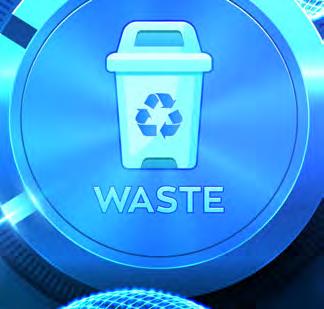


More government accountability and involvement is needed in Queensland’s waste sector.


What Queensland should do with its landfill levy monies
IT’S a story that won’t go away and now Queensland is weighing in on the debate – waste levies – what they should be, who should benefit and how they are being distributed are contentious issues.
In December 2020, the Waste Recycling Industry Association of Queensland (WRIQ) undertook the task of studying how each state government collects and reports on levy money and who benefits from grants.
The results highlight concerning inequities with how the levy scheme is being delivered, especially in the Sunshine State, and the need for a more strategic approach to improve the waste and resource recovery metrics for the state. WRIQ CEO, Mark Smith, is concerned about Queensland’s waste and resource recovery metrics.
“Queensland won’t reach our waste and recycling targets on our current path,” he said. “Our recent investigation identifies inequities to how the waste levy is approached in Queensland, and this could be contributing to that scenario.”
With the state government due to commence a levy efficacy review, Smith said he was keen to make sure the WRIQ was putting ideas on the table in addition to identifying inadequacies in the current approach
“I believe we’ve taken an honest and open approach to this piece of work and socialised aspects of this work with key stakeholders over the past few weeks,” he said.
WRIQ’s investigation was originally looking into levies and grants nationally but with COVID-19 impacts playing out differently across the country, it decided to focus on Queensland.
On the topic of waste levy and government intervention to support resource recovery, Smith identified who is leading the pack.
“There are some states that are clearly leading the way,” he said. “South Australia, Victoria and New South Wales are probably good examples, but Queensland is lagging. One of the reasons could relate to the annual payments to local councils, which I still struggle to process.”
Smith was keen to point out that the study is more about getting better outcomes as the state comes into a period discussing a review of levies. It is not about blaming government or councils not spending the money wisely, or as it was intended. He said there are several aspects to the study that have come to light in terms of how monies can be spent/allocated.
Smith also pointed out that the review was not seeking to inform what future pricing of the levy should be.
“It is not WRIQ’s place to advocate for a higher waste levy,” he said. “These are economic decisions which transcend our industry and will impact the economy and households. State governments should be making these decisions and also communicate these decisions to the public. That second part is often where there is room for improvement. We see our role in advocating for fairness in how the levy is applied, ensuring a level playing field and swift action on those seeking to undermine it.”
Smith said there is a lot of research and reports out there already that advocate that state governments should seek to harmonise levies and regulations to reduce illegal dumping and impacts affecting lower levy states. Decision makers need to read those reports, listen to the experts and make the right decisions, not take the easy way out.
“It is WRIQ’s place to hold the government accountable to their current policy commitments; put forward new ideas or suggestions and call out things that undermine business and private sector confidence,” he said. “What business wants for Queensland is the same thing government wants; a thriving, successful sector that’s managing our waste and recycling needs safely, sustainability and equitably.”
Levy integrity and the regulatory framework
WRIQ is advocating that more money needs to be put back into strengthening the regulator as well as investing in people and staff retention. Field officers carry out some of the most critical work in the sector but aren’t always supported. Recent work carried out by WRIQ shows that there is
high staff turnover, inconsistent applications of regulations, and departments sometimes not resourced appropriately. “We are seeking a commitment to an ongoing percentage of the levy going back into monitoring compliance,” said Smith. “The review of government expenditure found that hazardous waste gets little support from the government, from grants or other market-sanctioned measures.
“With recycling, we have these state and national targets, yet we don’t have anything like that with hazardous waste even though hazardous waste has the biggest environmental impacts and is a rapidly growing sector. It also costs the most to dispose of, which means it is also the most open to exploitation. Government doesn’t consistently monitor where all waste is going.”
The association also thinks there should be greater transparency around annual reporting – ie, where the waste levy is being collected and where it is being sent. It also believes there should be a six-month window for levy pricing changes.
“The previous levy change that business had to deal with, despite repeated requests to government, saw us with a 28-day notice period,” said Smith. “It takes longer than 28 days for a business to notify its supply chain. When government creates these scenarios it highlights a lack of understanding of the commercial environment and can lead to activities we don’t want to see, like dangerous stockpiling. Forward pricing the levy out to five to 10 years would provide enormous benefit for attracting private investment, too.”
According to Smith, a rethink must happen around illegal activity to give businesses a seat at the table. Highlighting the reluctance of the state government to invite industry to the table to tackle problems or issues that they’re dealing with, he also believes there is a role for industry bodies to start implementing industry standards. He believes this isn’t just about the government pulling up its socks, it’s about the industry taking responsibility, too.
Strategies to improve resource recovery
WRIQ proposes that the state government should consider what role it plays in market development and to broaden its definitions of investment. Smith advocates that grants may not necessarily be the best intervention; he would also like to see investment into the sector by state government, therefore developing the market conditions to aid with resource recovery.
“We all know that ministers love the ribbon cutting element,” he said, “and that the media releases highlight the jobs, the dollars etc, but what we need is market development. A challenge here is that the departments rolling out the traditional grant programs aren’t equipped to create a market development strategy for the sector, which needs business and broader government support. Maybe grants are just easier to get out the door.”
While Smith acknowledges there are a raft of programs to build more facilities, this is only part of the equation that needs addressing. He believes there should be more incentives for councils to adopt standard bin colours and sizes with the aim of improving messaging to the public.
“There should be a boost in waste education programs to focus on how to refuse, reduce, reuse, recycling campaigns and illegal dumping etc,” he said. “Adopt procurement programs that target the recycling content across government and councils. Each government department should develop its own internal waste and resource recovery plans.
“There is an unforgotten segment of our sector. At the moment we’re announcing new grant programs every other week but many of these programs don’t target existing facilities or allocate support for older facilities to upgrade. If we’re going to achieve our recycling and landfill diversion targets, we need to bring the old stock up to date and not focus on what is going to be the best announcement.”
Engagement and communication
Where the WRIQ thinks government could be more proactive is by elevating these conversations outside of the environment portfolio and that a ministerial advisory council should be established where ministers are talking directly to senior business representatives.
“There isn’t much two-way dialogue or an accord approach in terms of where we are going,” said Smith.
MANUFACTURERS OF WASTE EQUIPMENT
Astech Group manufactures quality steel bins of all types for the waste and recycling industries.
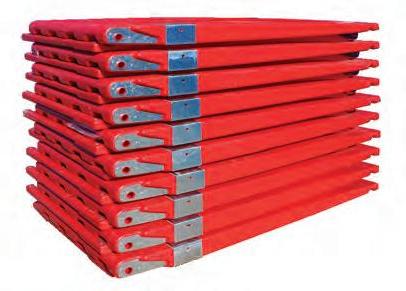
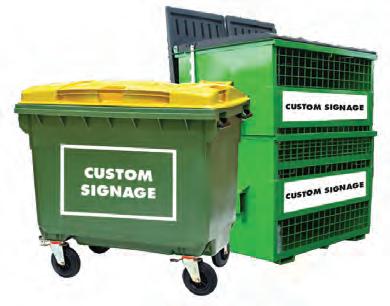
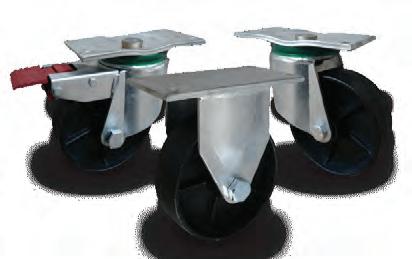
We also manufacture plastic waste bin lids, supply heavy duty caster wheels for mounting under the bins and produce multicoloured stickers for application to the bins, waste industry vehicles and many other applications. Focusing on quality and personal service since our commencement in 2009 has enabled us to become one of the leading suppliers of steel waste bins in Australia.
sales@astechgroup.com.au CALL US FOR A QUOTE 1300 137 109 SCAN QR TO HEAD ONLINE AND VIEW OUR PRODUCT RANGE
“That is what all of this is about – it is important that state governments establish frameworks that involve industry and local government. Sometimes we will get notification of nine days to contribute to policy and then months tick by and you don’t hear anything.”

Data and recording
Another key element of communication is making sure that governments get their ducks in a row when it comes to getting information out in a timely manner. As Smith points out, sometimes bureaucracy can be the enemy of progress and only government can remedy those situations. Then there is the issue of keeping interested groups abreast of who is getting what in terms of grant monies.
“I’m sure I am not alone when I say this. I’d probably prefer one less grant program and more attention to meeting your current legislative and public commitments. Releasing things in a timely manner is critical in building business confidence and why people participate in government processes,” he said. “For example, Queensland released its infrastructure report more than 600 days after it was handed to them. Effectively, the report is now out of date and has to be redone. This can feel like a waste of time and energy for stakeholders that took part and could reduce participation next time round.”
Environmental justice and social license
Thinking laterally, WRIQ also thinks that those communities that take the brunt of hosting waste facilities – whether they be landfills, MRFs or other waste-related enterprises – should be eligible for grants that are community based.
“Social licence to operate gets waved around by a lot of people, including elected officials,” Smith said. “Social licence tells us that there is a shared responsibility in building public trust and acceptance. A critical factor to building trust and acceptance includes ensuring that benefits are flowing back into communities. Things like a Landfill Community Development Fund (similar to a UK scheme) would utilise a modest 5 per cent of the levy and this would be available for communities living around landfills and could fund things important to those communities.”
He said the state should also be using levy money to develop programs to cater for core communities and remote and indigenous communities, and maybe commissioning research to understand social licence and take all the politics out of the issue. As for the companies that own or run facilities paying fees, taxes and levies, Smith isn’t sold on the idea, and believes it might be a little unfair to a lot of those businesses.
“To a business that is running a landfill, it’s important to note it’s not their waste they are managing, it’s the community’s waste they are managing,” he said. “The other thing that is not acknowledged is that most waste businesses are already contributing back to their communities through rates and taxes.
“For too long governments have said the social licence to operate is up to the business. If state governments and local councils have failed in planning decisions and planning for waste infrastructure, and the concentration of it impacting on the local communities, that is not a business’s fault, yet the business is expected to manage the fallout.”
Future focus and the workforce
Training is also in WRIQ’s sights, which is something that the sector needs to address when talking about industry development. Smith said some of the levy money could be invested back into trainee partnerships and programs with industry, universities and TAFEs. It could also be used for workforce development programs including jobs in Queensland. He said it would also help if there was support for associations to develop and promote accreditation training and continuous improvement in the industry, such as the Portable Long Service Leave Scheme, which Queensland has in place with other sectors.
“The idea of a regulator just catching people for non-compliance is not a sustainable process,” said Smith. “If businesses are doing the wrong thing then yes, they should be stopped, but we also need to be talking about the other end of this spectrum. How are we driving good performance? The department has now put out a new regulatory strategy and that is partially because some of the constant conversations we’ve been having with them about wanting higher standards. They are consulting on that at the moment.”
Safety and sustainability
Finally, one thing that needs addressing, which none of the state governments have in place – are low-risk communication plans – when there is a closure, or there is a disaster.
“We saw this in Victoria every time SKM’s facility caught on fire or was
Hazardous waste gets little support from the government in terms of grants or other market-sanctioned measures.
shut. We saw this in Adelaide with the Visy facility and Rockhampton where a regional MRF burned down and impacted the recycling needs of six regional councils,” said Smith.
“The state government played no role in co-ordinating those six councils. There are additional costs to move material. The state government should do some disaster or scenario planning with the private sector and local government so we can be prepared for it.”
Smith said there should also be conversations about tackling fire risk at the generator level. If government is serious about these issues it has to tackle what people are throwing into their bins, he said.
“There can be a lot of benefits in the implementation programs to remove waste streams like chemical and recycling bins as emission sources further down the supply chain,” he said. “These kinds of things would go a long way to improve safety.” iw

Navigating the legal ramifications of COVID-19
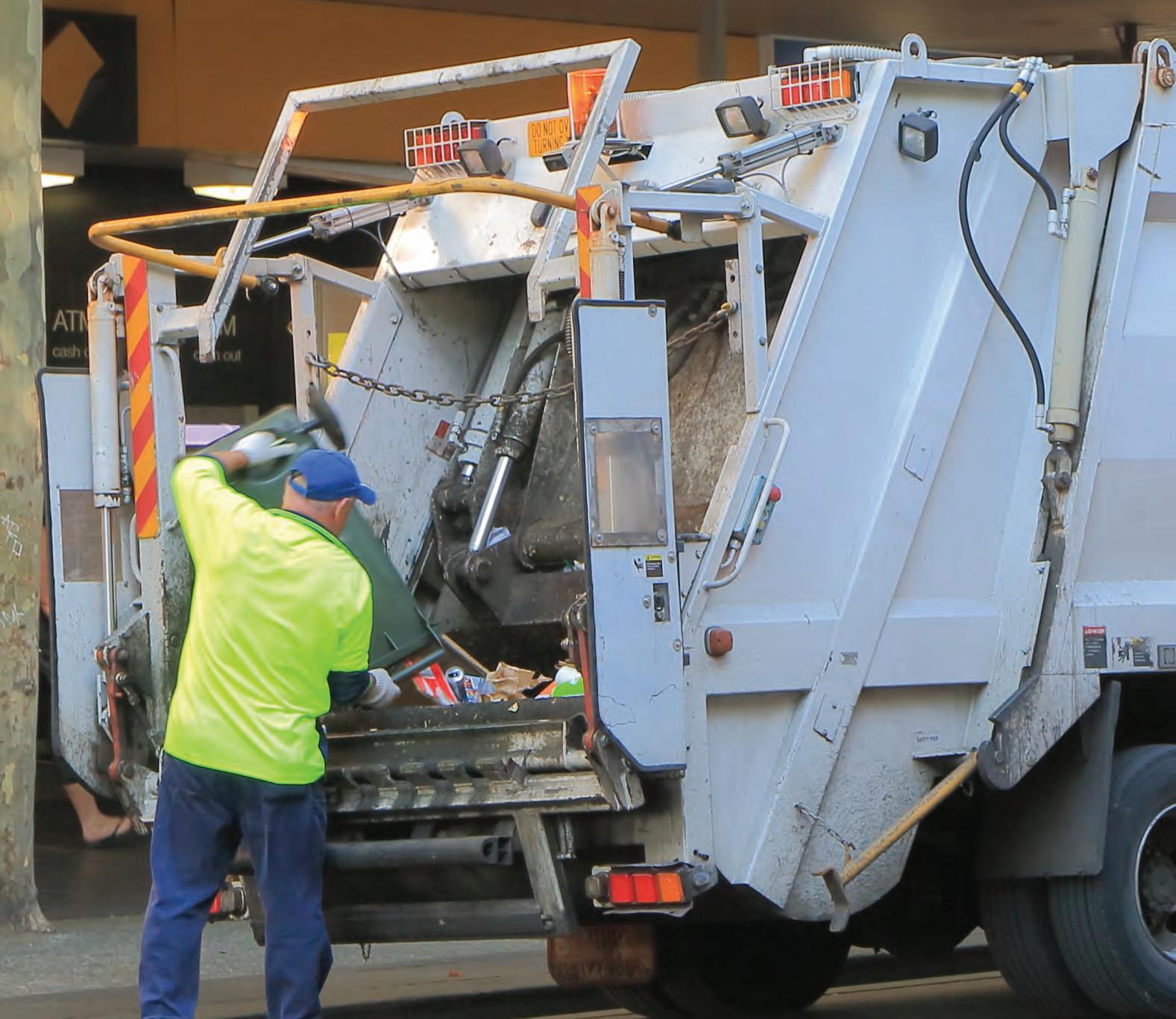
LIKE a lot of industries, waste companies had to navigate a lot of legal minefields as COVID-19 hit. Trying to sort out what management can do, can’t do, and how to keep their business going, plus understanding various health orders, has been challenging to a lot of firms.
In late 2021, the Waste Recycling Industry Queensland (WRIQ) held a webinar so that those within the industry could hear from legal experts on what was expected of them when it came to compliance with rules and regulations surrounding COVID-19. Lawyers Deanna McMaster and Rhian O’Sullivan – respectively partner and special counsel from law firm MinterEllison’s Queensland office – went through some of the scenarios.
One of the points McMaster made clear from the start was that, like a lot of businesses and workers, she felt that governments at both state and federal level could have been a lot clearer in their health orders.
“We worked with a lot of organisations to sit down and work out what are our control methods for COVID, what is reasonable and what should we do,” said McMaster. “It is fair to say we have not had a lot of clear guidance from government at the moment.”
While the Delta variant of COVID-19 is something that states such as New South Wales and Victoria have been intimately involved in managing, there remains a risk of ongoing outbreaks. Other strains are likely to emerge over the next few years, which means companies will have to put strategies in place in terms of dealing with the virus and how it will affect its business, staff and clients. McMaster believes assessing the risk of the virus as it pertains to a workplace is a good starting point. Some companies have mandated vaccination, which can be a tricky road to navigate when it comes to managing legal risk. She cites a recent Fair Work Commission case involving a manufacturer in Melbourne.
“They gave [staff] a six-week lead time to have their first vaccination,” she said. “The reason they were criticised was not because they mandated vaccination, but the failure to consult under the safety legislation before introducing it.
“What we are seeing a lot at the moment is that a decision to mandate vaccination is more likely to be defensible if you have a robust risk assessment which supports vaccination as a control measure in the workplace. It is also useful to get a medical professional, preferably an infectious
disease specialist, to provide input into the risk assessment process that supports mandatory vaccination as being a required control measure. Then if you are following an in-depth consultation process with your staff, it’s difficult to see how you might trip up in the same way that some companies have.”
McMaster also gives the example of a health order that related to the waste industry that was recently in place in NSW.
“There was an order relating to waste resource recovery services including collection, treatment and disposal,” said McMaster. “The requirement there was to be vaccinated, which is one way to comply with the health order. There are also other ways to comply, such as with a medical exemption or with some COVID testing. Basically, the effect of that order is that you can’t leave your local government area if you’re a worker covered by the order without complying with its requirements – vaccine, exemption or testing. Waste is now being recognised as a critical service to the public work.”
What happens if there is noncompliance with some health orders? McMaster said that the government will give out penalties to those that are not obeying government requirements, but businesses also need to be aware that their reputation can be on the line. This is because the majority of the community have certain expectations of businesses during this time.
“As I understand it, there have been penalties applied to some businesses already in relation to non-compliance,” said McMaster. “I think you have to assume that there will be penalties applied for non-compliance. The aspect is reputational. We are in a zone where community expectations are that organisations are doing everything they can to protect people from COVID-19. Certainly, some organisations that we have talked to have said, ‘that is a risk that we can’t tolerate. We take COVID-19 seriously’. Particularly anyone who is interacting with vulnerable communities.”
Then there are the safety laws that apply to workers. That includes rubbish truck drivers who might be picking up waste from a client’s workplace.
“It just doesn’t rely on the employer/employee relationship,” said McMaster.
“You have to think very carefully about what your requirements are going to be. For example, we know of one company that requires all visitors to its factory to be vaccinated. That would include those picking up their products from their factory.”
“There is the Fair Work Ombudsman website that has a lot of Q&A on COVID-19 issues and is a useful starting point for businesses,” said O’Sullivan.
In conclusion, businesses need to take the following into consideration according to McMaster and O’Sullivan.
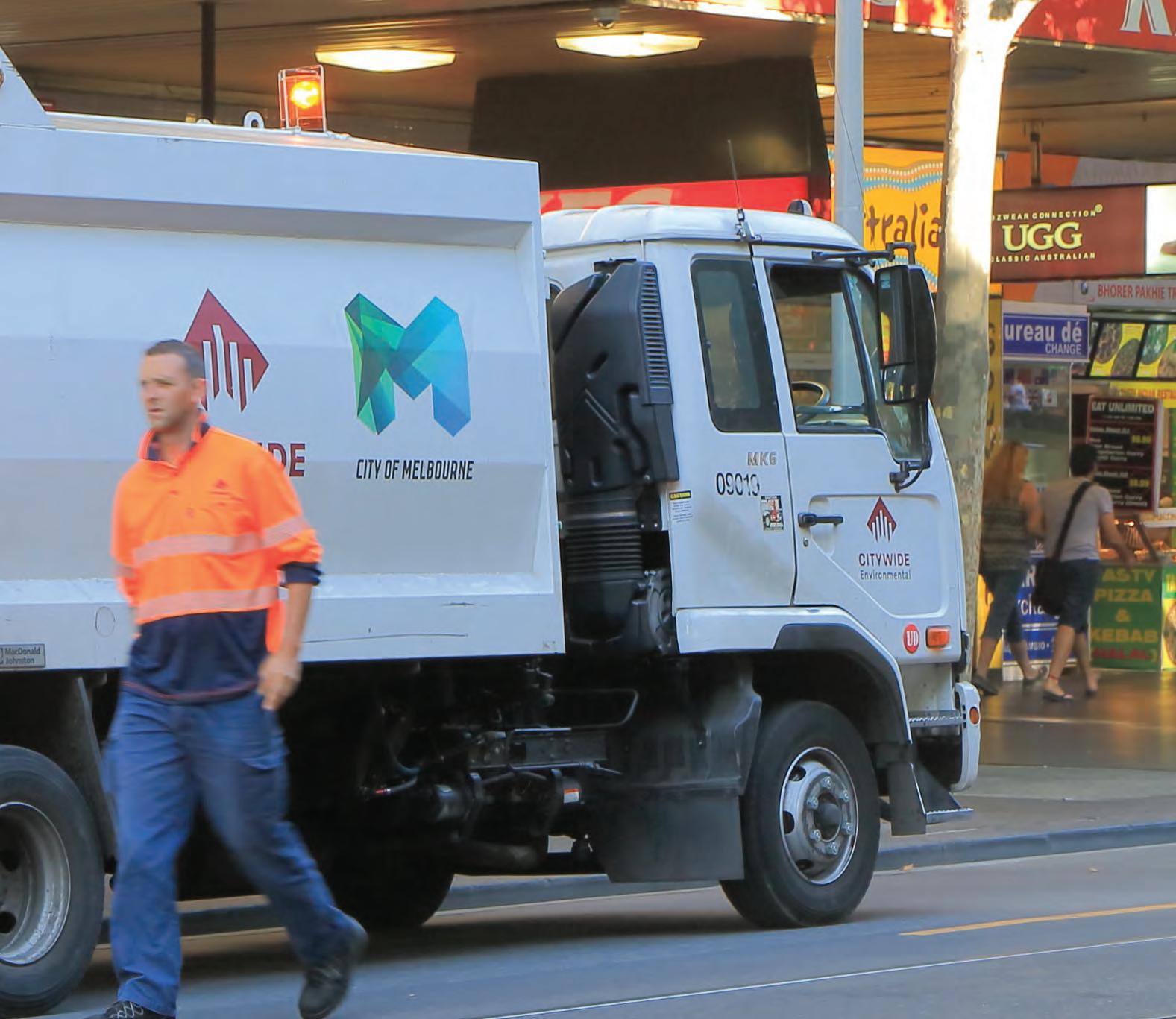
There are safety laws that apply to rubbish truck drivers picking up waste from a client’s workplace.
1) They should be signed up to the health directive advice and understand that advice and what is required within their businesses. 2) They need to take reasonable steps to ensure the safety of workers and others, which includes undertaking a risk assessment to help manage the risk of COVID-19 so far as is reasonably practicable.
Consideration should be given to the control measures appropriate to the particular workplace, which may include mandatory vaccination. It is vital that employers continue to consult with workers to manage the risks and identify appropriate control measures. 3) Also explore options around rapid testing. 4) Look at work from home arrangements as part of their control measures. 5) Basic measures such as social distancing and wearing a mask. iw



